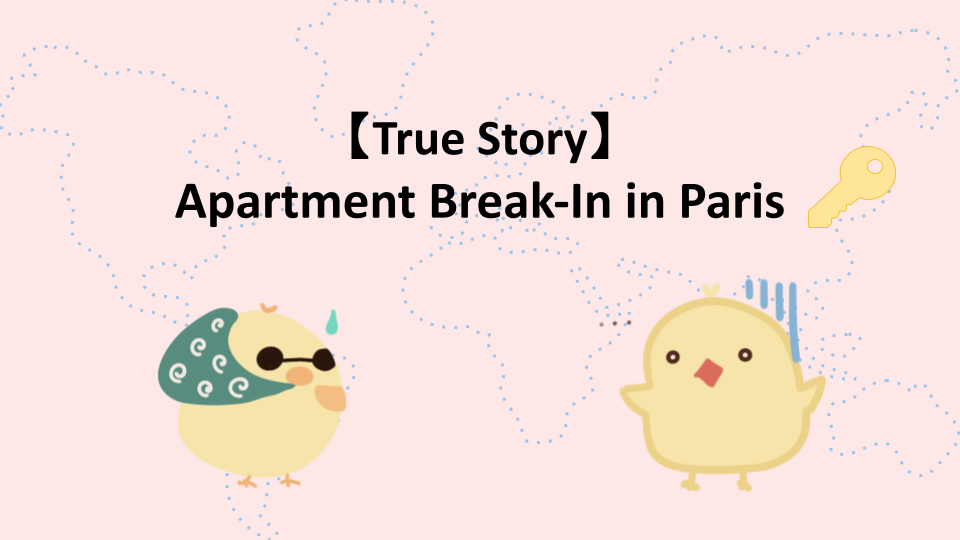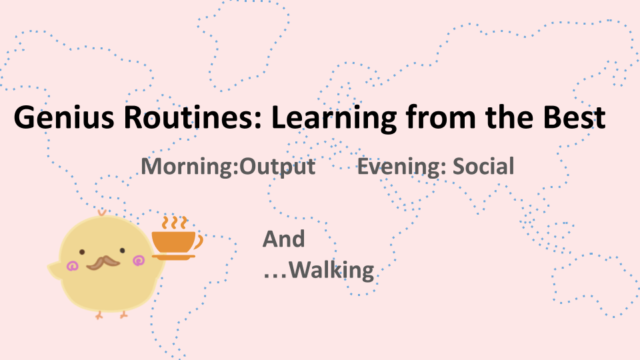Lessons Learned from an Apartment Break-In Europe: How to Help yourself

Day 1: The Start of a Nightmare
9 p.m. – The Discovery
Friday night, 9 p.m. Exhausted from work, I was dragging my body home after a failed, energy-consuming experiment. My only wish was to collapse into bed and sleep like crazy.
When I arrived at my apartment door, something felt off. Three pieces of paper with barely legible handwriting, some numbers, and an exclamation mark were stuck to my door. Too tired to comprehend the French notes, I tried inserting my key—but the lock wouldn’t budge.
As I struggled with the key, my neighbor, a kind Madame, appeared. She said something in French, but I only caught a few words. Finally, she explained: “Your apartment was broken into today.”
She kindly pointed to one of the numbers on the paper, saying I should call it. I hesitated, but I dialed.
9:30 p.m. – The Locksmith
Ten minutes later, the locksmith arrived with a big, almost cheerful smile. “I’m so sorry for what happened to your apartment!” he said, sympathetically. He explained that the break-in happened around noon. A thoughtful police officer had already called the locksmith to repair the destroyed door lock.
Then, he opened my door.
9:35 p.m. – A Disaster in My 9m² Apartment
The scene inside was chaos.
Books, clothes, and belongings were scattered everywhere. The lock from my door had been flung to the other side of the room. My plant lay miserably abandoned on the floor. Drawers were pulled out, towels dangled like cow tongues, and even tissue packages had been cut open. Mysterious black powder—fingerprint dust, I later learned—was scattered across everything.
There was barely enough space to step inside my tiny 9m² apartment. My favorite decorations had been destroyed, their former charm unrecognizable.
Thankfully, I had hidden my most important belongings well. The stolen items were:
- A pair of earrings (€20)
- A swan-shaped money-saving box (€30)
- About €200 in cash
(My old 20-year-old Japanese laptop was left untouched—apparently, even thieves have standards.)
9:50 p.m. – The Invoice Shock
After consoling me with smiles and kind words like, “Don’t get too depressed, cheer up!” the locksmith handed me an invoice.
The amount? €863.
My jaw nearly dropped. Suddenly, I understood why he had been smiling so much. Without further explanation, he left me dumbfounded with the staggering bill.
10:00 p.m. – Preparing for the Night
After explaining the situation to my landlord, I tried to clear enough space to sleep. But in such a tiny apartment, there was nowhere to temporarily move my scattered belongings. Exhausted and overwhelmed, I resolved two things that night:
- To own fewer belongings in the future.
- To move into a space larger than 9m².
Adrenaline kept me awake as I discussed with friends how to protect myself. I made a makeshift barricade with a chair and plant (which my friends said looked completely useless). One friend taught me how to use a long stick as a self-defense weapon. Another suggested using pepper spray.
At one point, I thought about keeping a kitchen knife by my pillow, but my mother sternly warned me: “Don’t do that! It’ll turn into a death match!”
Day 2: The Police
I finally slept at 6 a.m. and woke up two hours later to a knock on the door.
A young couple from my floor explained they had also been broken into. Their expensive laptops were stolen (suddenly, I felt grateful for my ancient computer). They advised me to go to the police station to file a damage report.
At the station, I filled out forms detailing what was stolen and the damage to my apartment. There was even a section to describe the suspect—but, of course, I had no clue.
Police Visit
Back home, as I was tidying up, two large men knocked on my door. They were police officers.
They explained the black powder I’d found everywhere was fingerprint dust. They took my palm prints to distinguish my fingerprints from the thief’s.
One officer pointed to my white Chanel box, a graduation gift I used to store stationery. “Thanks to this box, we got a perfect fingerprint!” Apparently, the thief thought it held something valuable.
Interestingly, I noticed the locksmith’s logo and number printed on the police officers’ pens. A smart advertising strategy, I thought.
Day 3: Negotiating With the Insurance Company
The biggest financial loss was the €863 locksmith fee. I remembered I had home insurance through my bank, so I contacted a familiar staff member.
Her response? “No.”
Apparently, my insurance didn’t cover theft-related damage. She sounded cold, and I felt crushed. Refusing to give up, I asked colleagues to help call in French—but the answer was still no.
Finally, I reached out via the insurance app. I wrote, “Someone broke my door.” This time, my claim was approved! Persistence paid off.
30 Days Later: Back at the Police Station
One month later, I received a call from the police. They’d arrested the thief!
At the station, they showed me his picture and explained that he had committed the same crime multiple times. However, he would only spend a few days in prison due to limited resources.
The officer assured me: “Thieves rarely attack people because the punishment for violence is harsher.” Small comfort, but I felt slightly less anxious.
Sadly, none of my stolen items were recovered, as they had likely been sold on the black market.
Lessons I Learned
Here’s what this experience taught me:
- Don’t keep a lot of cash at home. I now limit myself to €20.
- Minimize valuable possessions. Thieves know all the usual hiding spots.
- Use decoys. Create distractions to protect your truly precious items.
- Don’t give up on insurance claims. Persistence can pay off—try multiple approaches.
I hope these lessons can help you. (Though the best lesson is to avoid this situation altogether!)






